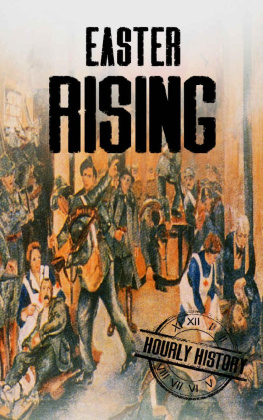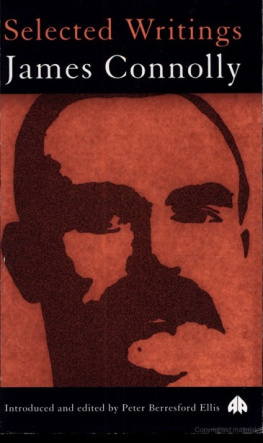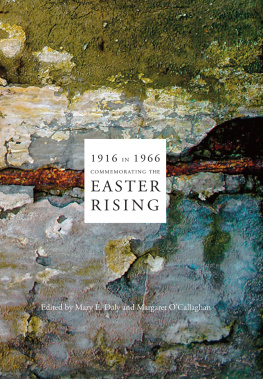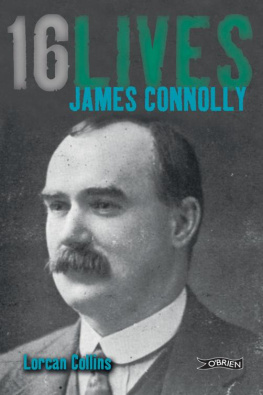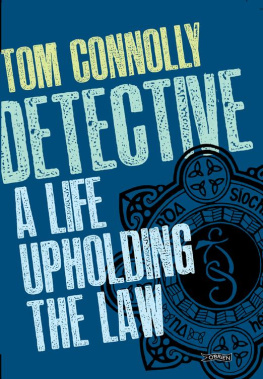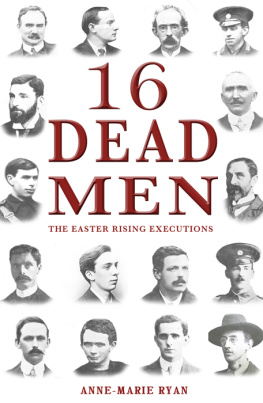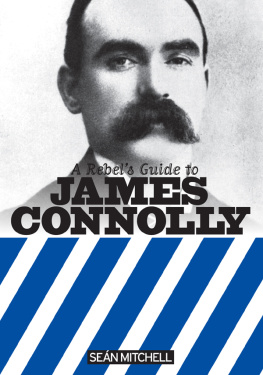THE JAMES CONNOLLY READER
THE
JAMES CONNOLLY
READER
Edited by
Shaun Harkin

2018 Shaun Harkin
Published by in 2018
Haymarket Books
P.O. Box 180165
Chicago, IL 60618
773-583-7884
www.haymarketbooks.org
ISBN: 978-1-60846-666-5
Trade distribution:
In the US, Consortium Book Sales and Distribution, www.cbsd.com In Canada, Publishers Group Canada, www.pgcbooks.ca In the UK, Turnaround Publisher Services, www.turnaround-uk.com All other countries, Publishers Group Worldwide, www.pgw.com
This book was published with the generous support of Lannan Foundation and Wallace Action Fund.
Cover design by Jamie Kerry.
Library of Congress CIP Data is available.

This volume is dedicated to the memory of Aaron Hess and to everyone struggling for a world free from exploitation, injustice, and oppression.
Introduction
Socialism represents the dominant and conquering force of our age, the hope of the worker, the terror of the oppressor, the light of the future. Workers of Ireland, salute that light; when once it shines full upon your vision the shackles of ages will fall from your limbs. Freedom will be your birthright.
James Connolly, Compromise, Workers Republic, August 13, 1898
This introduction aims to bring to light James Connollys life and the development of his political ideas and, where possible, to assess his actions in relation to the struggles he faced. The rest of the book is Connolly in his own words. His life, ideas, and efforts deserve attention not only as a guide to understand Irish history, but also as a contribution to the training of a new generation of socialists in the present and future struggles against injustice and inequality, for working-class emancipation, and for socialism. Connolly was an exemplary rebel. He spent his life organizing against injustices he opposed, but he was also for something. He was for socialism. This is incredibly important today.
James Connolly became a revolutionary socialist and Marxist in his early twenties, and dedicated his life to the fight against exploitation, oppression, and imperialism. Everywhere he livedScotland, Ireland, and the United Stateshe organized for socialism and struggled with the working class. He believed in the solidarity of labor across borders and across the entire globe. His vision was universal and inspiring. His militancy and commitment to class struggle was fueled by the terrible poverty he was born into, which he failed to escape throughout his entire life. Political notoriety brought Connolly no luxury; he never left his class.
Connollys background is essential for understanding his deep class loyalty and burning resentment of injustice everywhere, but it was his absorption of the revolutionary ideas of Karl Marx that gave theoretical direction and
Connolly believed that only working-class people, the downtrodden and dispossessed themselves, could cleanse the world of tyranny, war, and injustice. In our day and generation, he wrote, there is only one class which can be depended upon for revolutionary action. That class is the working class. Not because the working class is in its individual members better than other classes, but because it is the only class in the community which has nothing to hope for from the maintenance of present conditions.
Connolly is one of the most well known, most revered, and, often, most misrepresented characters in Irish history. George Dangerfield, historian and author of the classic Strange Death of Liberal England, astutely described Connolly as one of the great figures in modern Irish history: a passionate intellectual, a master of polemical prose, a profound revolutionary socialist. In two causesthe advancement of an Irish working class that he admired, loved and idealized, and the battle against an imperialism he found degrading and hatefulConnolly devoted his life. In terms of the kind of action employed in their service, it was the selfless, empirical and dynamic activism of James Connolly which has given him his place in history.
James T. Farrell, author of the Studs Lonigan trilogy, described Connolly as an extraordinary figure during the early years of the twentieth century, not only in the Irish movement, but more broadly in the world movement for workers emancipation. The intellectual fruits of his life are to be found in his work Labor in Ireland. This book is not only fundamental for a study of modern Irish history, it is also a contribution to the world library of socialist thought.
In Ireland, Connolly organized for the simultaneous defeat of British rule and capitalism by attempting to establish a workers republic. His goal was to muster all the forces of labor for a revolutionary reconstruction of society and the incidental destruction of the British Empire.capitalist competition. Socialism was not some sort of casual add-on, but the very center and soul of his political being.
His aim was clear: Organize as a class to meet your masters and destroy their mastership; organize to drive them from their hold on public life through their political power; organize to wrench from their robber clutch the land and workshops on and in which they enslave us; organize to cleanse our social life from the stain of social cannibalism, from the preying of man upon his fellow man. Toward this definite goal, Connolly established the Irish Socialist Republican Party and pioneered the application of Marxist ideas to Irish political, social, and economic conditions.
He stood for revolution, not reform or management of capitalism by socialists: It is necessary in Ireland as well as in England to emphasize the point that the policy of the capitalist at present throughout the world is the policy of pretended sympathy with working-class aspirationssuch sympathy taking the form of positions for our leadersand the man who can not diagnose the motives directing that move BEFORE the harm is done is a danger to the Socialist movement.
Connolly is most renowned for his role in the 1916 Irish Rising, also known as the Easter Rising. His aim in the rebellion was to seize the opportunity presented by the slaughter of World War I to strike a blow against British imperial rule in Ireland. But his perspective was never narrowly limited to Ireland. He held a continental vision of permanent revolution: a rising in Ireland could simultaneously ignite a European-wide uprising against war and empire, but also against capitalism, the irrational economic system responsible for generating war.
He clarified this perspective days after the outbreak of war in 1914: It is our manifest duty to take all possible action to save the poor from the horrors this war has in store. Starting thus, Ireland may yet set the torch to a European conflagration that will not burn out until the last throne and the last capitalist bond and debenture will be shriveled on the funeral pyre of the last warlord. When socialist parties across Britain and Europe betrayed their commitment to oppose imperialist war, Connolly rose to the occasion and insisted on the need for revolution.
For his leadership of the insurrection, Connolly was executed by a British Army firing squad at dawn on May 12, 1916, in Dublins Kilmainham jail. However, he regretted nothing. In his last statement, given to his daughter Nora shortly before his murder, he wrote: We went out to break the connection between this country and the British Empire, and to establish an Irish
Next page

